Third Annual Planting for the Future on Camp Ripley
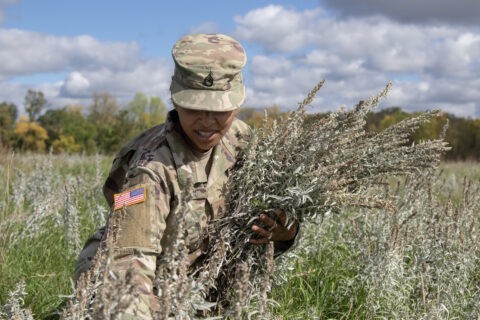
September 23, 2021 (CAMP RIPLEY, Minnesota) – Members of the Minnesota National Guard, Camp Ripley employees and Norwegian Home Guard Soldiers welcomed students and tribal members to Camp Ripley, Sept. 21, 2021, for a day of cultural exchange during the third annual Planting for the Future event.
“This event is an evolution of ideas from our annual Native American consultation and student sage harvest,” said Patrick Neumann, Cultural Resources Manager for Camp Ripley. “It has become a great opportunity to share experiences with our neighbors.”
Juniors and Seniors from Bug-O-Nay-Ge-Shig School of the Leech Lake Band of Ojibwe arrived at the Amphitheater near the Mississippi River at Camp Ripley to participate in the day’s events.
After a short ceremony led by Terry Kemper, the Tribal Historic Preservation Officer for the Mille Lacs Band of Ojibwe, the students, employees and Soldiers split into two groups. Each group had the opportunity to harvest sage and learn basic archery skills.
The Mille Lacs Indian Museum and Trading Post provided the equipment for archery and set up a range for the students and soldiers. Additional staff from the Minnesota Historical Society Forest History Center provided a hands-on demonstration and lessons for the participants.
“It’s always a rewarding experience to host students and introduce them to natural resources and stewardship projects at Camp Ripley,” said Katie Retka, a Natural Resource Specialist at Camp Ripley. “Bringing in additional partners that support cultural resources and outdoor recreation has a meaningful impact for all.”
Less than one percent of the tall grass prairie that once stretched across central and southern Minnesota remains today. Camp Ripley has several thousand acres of grassland communities that serve as a representative sample of a tall grass prairie landscape, while also providing the military access to sustainable training.
For years, Camp Ripley has been conducting prairie restoration near the Amphitheater. The site offers the perfect location to increase understanding of the sacred roles plants have in Native American culture.
“To those who live in the traditional way, there are four plants which are especially revered and used in daily living. The creator taught us to use the natural herbs of sage, sweetgrass, tobacco and cedar smoke as a physical reminder to them of this omnipotent presence. It is the sacred way,” according to the Anishinaabemowin website.
The sage harvested during the event will go back to the Leech Lake Band of Ojibwe and be for ceremonial use throughout the year.
Once the sage harvest was complete, everyone came together to enjoy lunch. The meal for the day was a traditional Native American dish of bison wild rice and fruit prepared by Native Food Perspective.
Camp Ripley Garrison Commander Col. Josh Simer and Norwegian Home Guard Soldiers were invited to join Kemper around the drum to learn about Ojibwe culture and its importance.
Kemper also invited students to join in singing to accompany the drum during the closing ceremony and traveling song.
Story by Sgt. Mahsima Alkamooneh, Camp Ripley Public Affairs
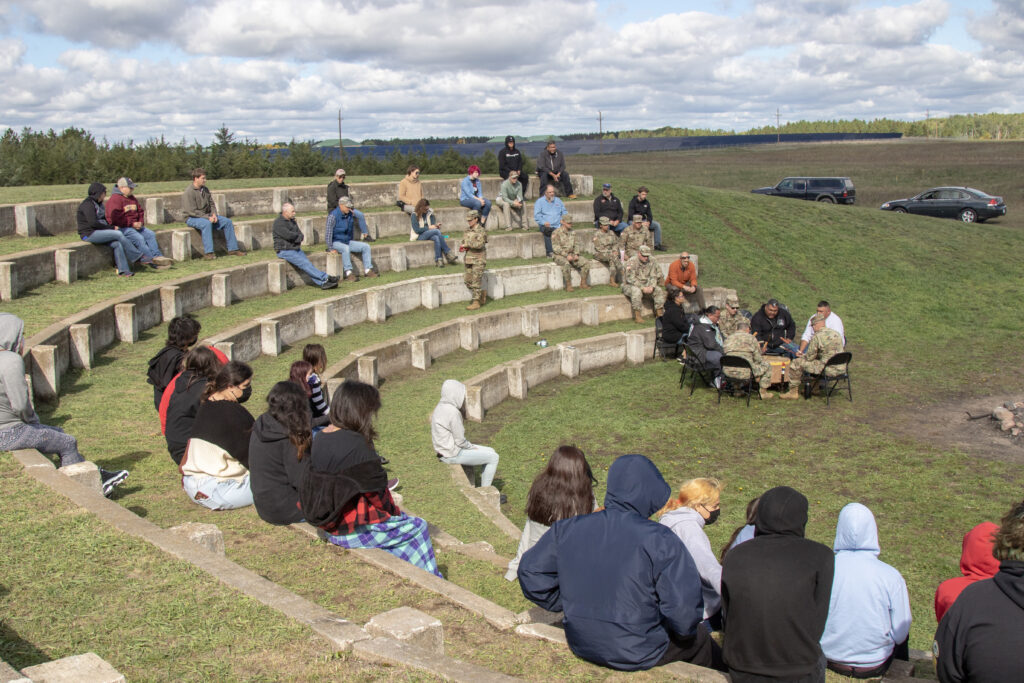
Juniors and Seniors from Bug-O-Nay-Ge-Shig high school, part of Leech Lake Band of the Ojibwe visited Camp Ripley, September 21, 2021, to participate in the third annual Planting for the Future event. Minnesota National Guard service members, Camp Ripley employees and Norwegian Home Guard soldiers also joined for the event. These activities generate deeper cultural understanding and mutual respect for Ojibwe heritage, stewardship ethics, and natural resources. (Minnesota National Guard photo by Sgt. Mahsima Alkamooneh) 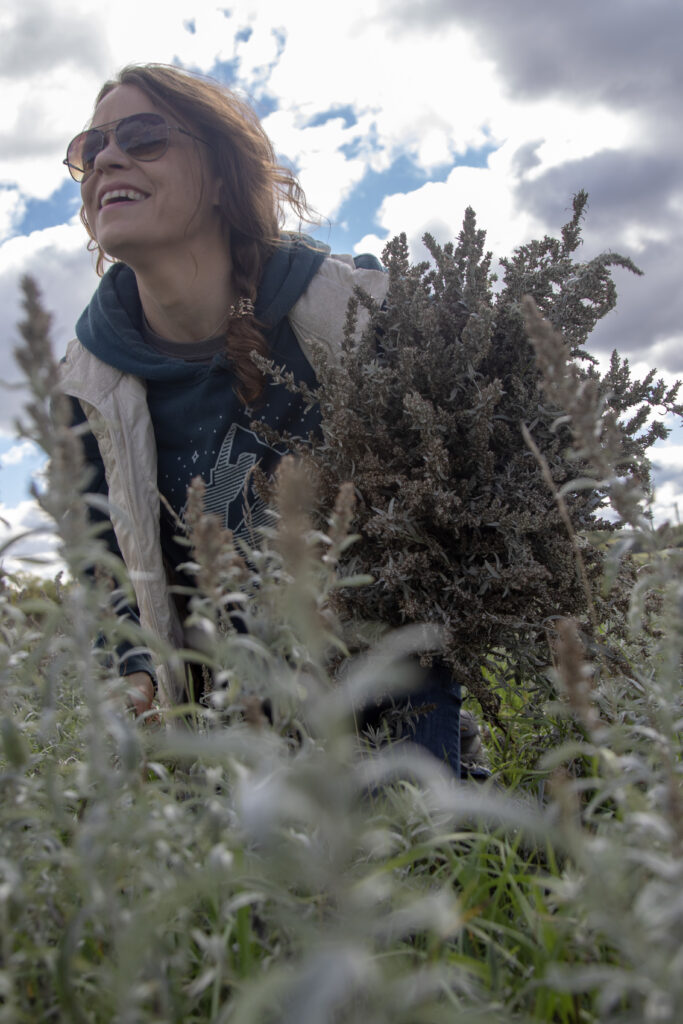
Juniors and Seniors from Bug-O-Nay-Ge-Shig high school, part of Leech Lake Band of the Ojibwe visited Camp Ripley, September 21, 2021, to participate in the third annual Planting for the Future event. Minnesota National Guard service members, Camp Ripley employees and Norwegian Home Guard soldiers also joined for the event. These activities generate deeper cultural understanding and mutual respect for Ojibwe heritage, stewardship ethics, and natural resources. (Minnesota National Guard photo by Sgt. Mahsima Alkamooneh) 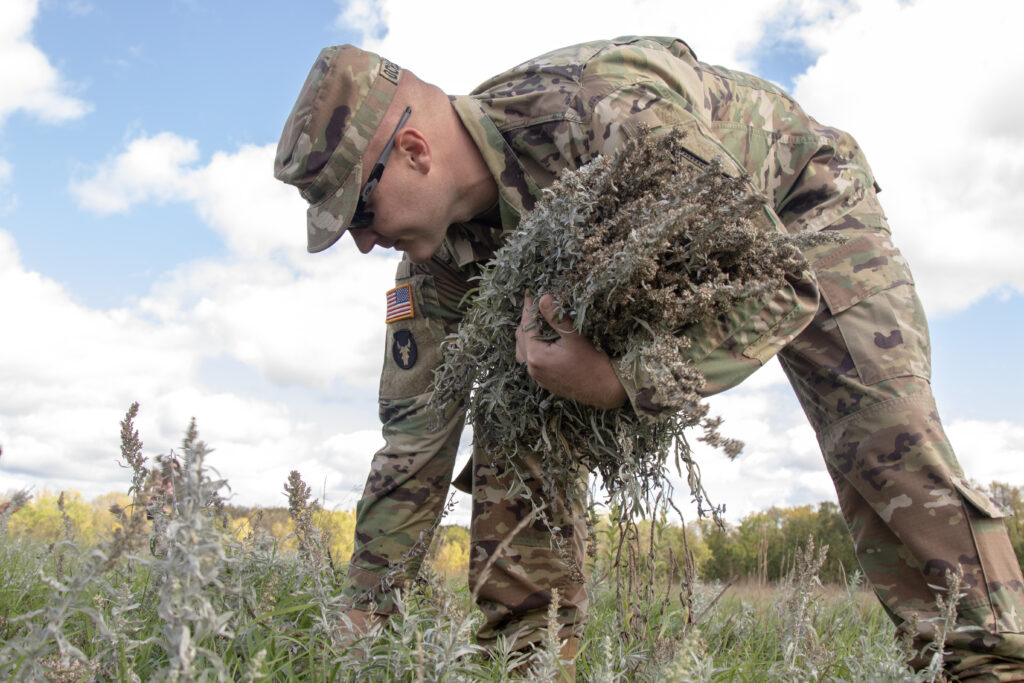
Juniors and Seniors from Bug-O-Nay-Ge-Shig high school, part of Leech Lake Band of the Ojibwe visited Camp Ripley, September 21, 2021, to participate in the third annual Planting for the Future event. Minnesota National Guard service members, Camp Ripley employees and Norwegian Home Guard soldiers also joined for the event. These activities generate deeper cultural understanding and mutual respect for Ojibwe heritage, stewardship ethics, and natural resources. (Minnesota National Guard photo by Sgt. Mahsima Alkamooneh) 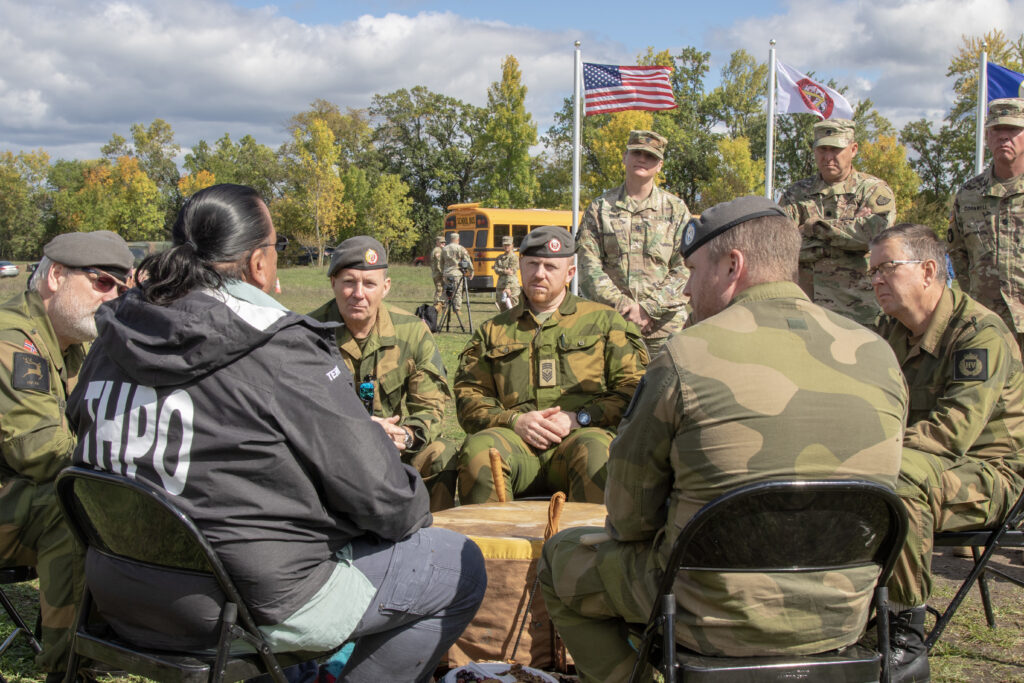
Juniors and Seniors from Bug-O-Nay-Ge-Shig high school, part of Leech Lake Band of the Ojibwe visited Camp Ripley, September 21, 2021, to participate in the third annual Planting for the Future event. Minnesota National Guard service members, Camp Ripley employees and Norwegian Home Guard soldiers also joined for the event. These activities generate deeper cultural understanding and mutual respect for Ojibwe heritage, stewardship ethics, and natural resources. (Minnesota National Guard photo by Sgt. Mahsima Alkamooneh) 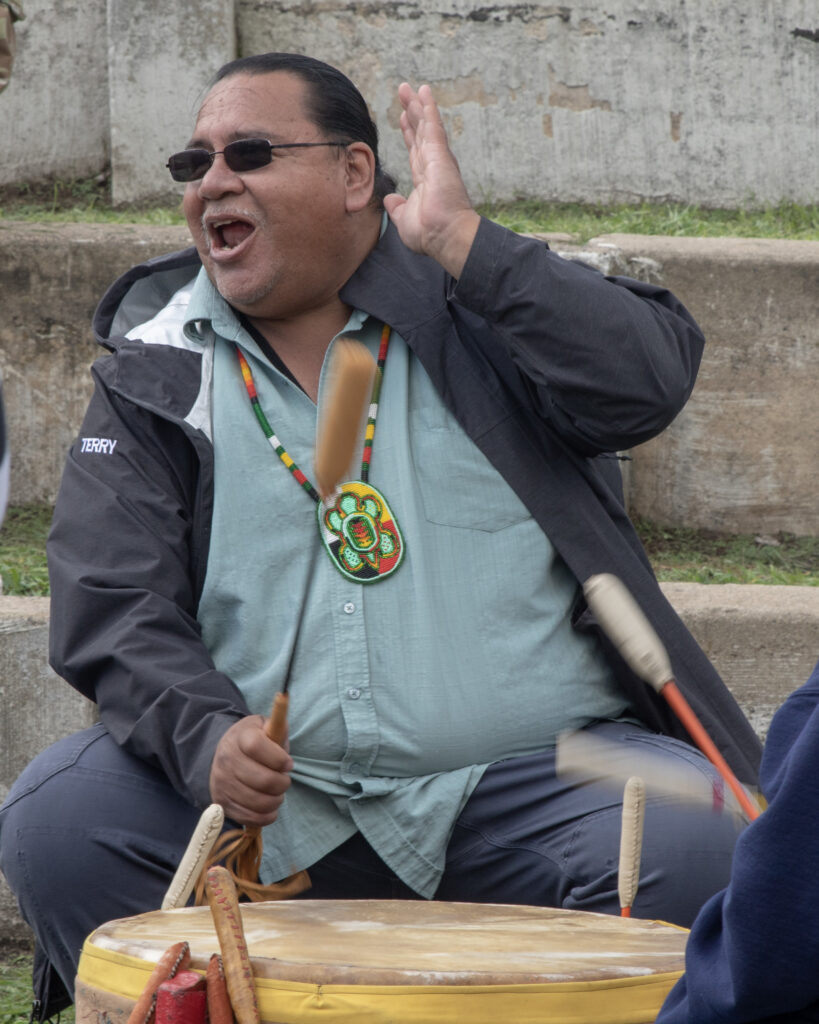
Juniors and Seniors from Bug-O-Nay-Ge-Shig high school, part of Leech Lake Band of the Ojibwe visited Camp Ripley, September 21, 2021, to participate in the third annual Planting for the Future event. Minnesota National Guard service members, Camp Ripley employees and Norwegian Home Guard soldiers also joined for the event. These activities generate deeper cultural understanding and mutual respect for Ojibwe heritage, stewardship ethics, and natural resources. (Minnesota National Guard photo by Sgt. Mahsima Alkamooneh) 
Juniors and Seniors from Bug-O-Nay-Ge-Shig high school, part of Leech Lake Band of the Ojibwe visited Camp Ripley, September 21, 2021, to participate in the third annual Planting for the Future event. Minnesota National Guard service members, Camp Ripley employees and Norwegian Home Guard soldiers also joined for the event. These activities generate deeper cultural understanding and mutual respect for Ojibwe heritage, stewardship ethics, and natural resources. (Minnesota National Guard photo by Sgt. Mahsima Alkamooneh)


